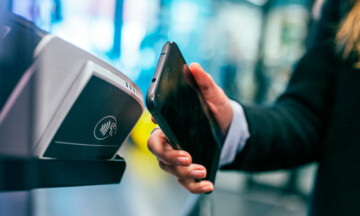The travel industry undoubtedly took a hit from the coronavirus pandemic. While the market may never return to its previous state, the future looks promising. In order to stay profitable and scale in the ever-evolving world of tourism, marketers must keep a finger on the pulse. Look out for these hospitality marketing trends for 2022 and beyond.
Shifts in the Sharing Economy
Bookings for single-family rentals on sites like Airbnb and VRBO saw an uptick toward the end of 2020 and into 2021. As folks sought out more secluded accommodations and room to roam amid pandemic restrictions, an increased number of reservations were for remote cabins and cottages, as well as properties with large outdoor spaces.
People appreciate the unique rentals and “live like a local” experiences offered by the sharing economy. That said, the crisis highlighted a desire for cleanliness, which is more often associated with hotels than rental homes. To satisfy the changing demands of travelers, Airbnb is expanding its offerings into hotels, and we expect hotels to expand into the home-sharing market too.
Marketing teams may need to consider how you position your hospitality service in light of this dynamic. Highlighting the right content on web pages, booking listings and social posts can help you capture this wider market.

Global Tourism
The future of tourism isn’t crystal-clear, but economists and travel experts predict a global tourism boom in the near future. According to the U.S. Travel Association, upwards of half of Americans have set funds aside in the past year, and many report they’re ready to spend some “fun money.”
As more countries lift travel restrictions and people finally venture out and start spending more on experiences, the travel industry should reap the rewards. Additionally, remote work offerings and increased opportunities for business travel will likely fuel the boom.
Creating marketing channels for the business traveler and vacation traveler alike is nothing new. This change, however, may tilt the percentage of your marketing efforts that go toward one audience versus another depending on your focus.

Booking via Voice
More than 20% of people use voice search on a weekly basis, whether it’s to order products online, get directions, or look up a fact—and the number is expected to grow. Though booking a hotel or flight through voice search may seem like it poses a risk for errors, it’s already taking off.
We anticipate this to be one of many hospitality trends to transform the industry in years to come. As a business owner, creating a voice-friendly listing is crucial for your future success. This is top of mind for SEO specialists as we see how online search changes for a wide variety of industries.
The Next Generation of Travel Agents
Travel agents aren’t just for booking flights and hotels anymore. The next generation is providing travelers with a more comprehensive experience through a range of offerings, like ride-sharing, meal delivery, dining reservations, destination weddings, and long-term accommodations.
Online travel agencies (OTAs) like Expedia and TripAdvisor take the place of traditional agents by providing a digital platform to research, plan, book, and modify trips. Roughly three-quarters of travelers book on an OTA site, and it’s wise for businesses within the industry to get in on the action. This also highlights the challenge to rank and get direct bookings against these giants of the hospitality space. Strategic SEO and robust marketing campaigns will continue to be needed.
Pre-Booking VR
The VR (virtual reality) industry is expected to expand from less than $5 billion in 2021 to more than $12 billion by 2024. Within the hospitality market, the technology allows prospective travelers to explore their accommodations and the surrounding area before booking a trip. This can provide people with peace of mind when visiting somewhere new while helping hoteliers show off their offerings. Hospitality brands with a large international focus may want to consider funding this marketing initiative in the year ahead.

Sustainable Stays
To be in line with the Paris Climate Agreement, the global hotel industry will need to reduce its carbon footprint by 90% by 2050. This is not only good for the planet but also good for business.
Consumers (particularly younger generations) are beginning to demand sustainability from the brands and organizations they spend money on. An eco-friendly approach to hospitality can help you satisfy your current guests, expand your reach, and compete in the changing market.
Mobile-Friendly Services
When travelers board a flight or arrive at a hotel, they want an easily accessible, customer-focused experience. Consumers bank, shop, and order dinner through their smartphones and tablets—and they’re beginning to expect a mobile-friendly experience everywhere they go, including hotel rooms and airplanes.
Roughly 83% of people in the U.S. currently use a mobile device to access the internet, and by 2023, the number is predicted to be over 90%. Hospitality marketers should prioritize not just a mobile-friendly website but also a branded app to offer things like booking assistance, touchless check-in, concierge services, and travel rewards.

Digital Marketing for the Hospitality Industry
Staying up-to-date on the latest hospitality trends and predictions is vital to your bottom line. If you need support with your promotional strategy or are looking for SEO services, our digital marketing agency is here to assist. Give us a shout to get started.

